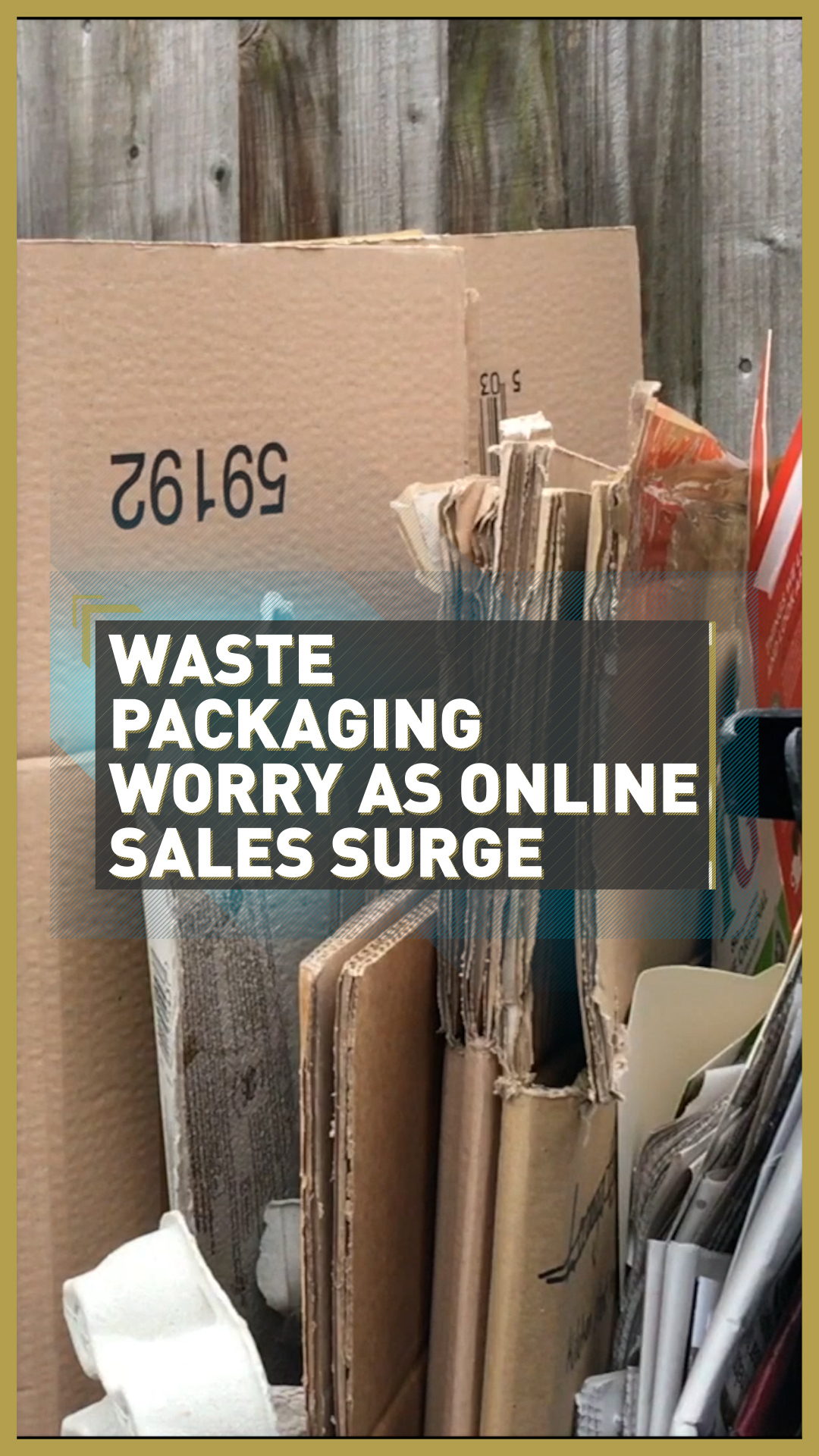01:53

A surge in online buying during lockdown has also led to vast amounts of packaging, raising further questions over whether it is necessary and concern that too much of it is still not getting recycled.
With a second lockdown in many countries and non-essential shops closed, consumers are ordering products online more than ever. And when a parcel arrives on our doorstep, it is not unusual to have to unwrap multiple layers of plastic and cardboard protecting just one, small item.
The sight of recycling bins overflowing in London is mirrored in many cities across Europe. Local councils in the UK capital are saying they are collecting record amounts of waste for recycling this year.

Many customers are asking why there is the need for so much packaging and as some select more sustainable delivery options, the pressure is on companies to reform shipping methods.
The world's biggest online retailer, Amazon, one of many companies facing criticism for its overuse of packaging, says it is now taking steps to reduce waste.
"Over the past few years, Amazon has eliminated more than 880,000 tons of packaging materials – or more than 1.5 billion shipping boxes – and has innovated to use more easy-to-open, recyclable packaging and shipping products in their own packages without additional shipping boxes," it said in a statement.
"Our aim is to make all Amazon shipments net zero carbon, with 50 percent of all shipments being net zero carbon by 2030."
But some environmental campaigners believe Amazon should be doing more.
"We have to look at organizations like Amazon to really sort of sound them out and say we need a better approach to online packaging. If this is going to continue, they ultimately have a huge impact on the plastic waste problem, not just through their packaging," said Daniel Webb, founder of Everyday plastic, a campaign group that conducted a survey on household waste during the first UK national lockdown.
"Through the products they [Amazon] sell, actually they have a great opportunity and a great responsibility to be leading other organizations," Webb added.

Amazon has said it has cut out 880,000 tons of packaging materials over the past few years. /Mike Kemp/Getty
Amazon has said it has cut out 880,000 tons of packaging materials over the past few years. /Mike Kemp/Getty
For an increasing number of companies, an environmentally friendly delivery method is a selling point to attract conscientious customers, as well as being an overall ethical goal.
Sustainable fashion brand BAM considers reducing packaging waste a priority.
"We're constantly exploring the most sustainable option that's available to us and constantly trying to change things where we can, so most recently [we've] changed back to paper postal bags, which are craft paper, so they're usually made from recyclable sources and are fully recyclable," said Merryn Chilcott, sustainability and technical manager at BAM clothing.
The company has also replaced conventional plastic from its packaging, with an alternative plastic that can be industrially composted. It has even removed tiny plastic tags from items.
"Our goal to be 'Impact Positive' by 2030 includes becoming a zero-waste-to-landfill business. And we feel like it's really important to look at every aspect of our business," said Chilcott.
"We're not just looking at where the clothing ends up, but we're looking at every single aspect of the journey of the clothing, right from the way that it's packaged, the way that it's sold, right down to the customer journey at the end and what the customer has to do with that packaging."
But environmental campaigners say the current UK recycling infrastructure is not meeting everyday household needs.
"We found that about 63 percent of what people threw away in lockdown, one [percent] would end up getting incinerated, around 25 to 28 percent would get landfilled and six percent would end up getting sent overseas," said Webb.
"Sadly, only five per cent would end up getting recycled here in this country. When we talk about recycling, we can see it as part of the solution, but it isn’t the main solution. What we need to do is reduce what we use, what we throw and encourage a reuse and refill culture."
The ultimate solution would be a change in consumer habits, but with Black Friday and Christmas looming and many high street stores closing, online shopping is only set to increase.

More online buying has led to an increase in waste packaging. /Richard Baker/Getty
More online buying has led to an increase in waste packaging. /Richard Baker/Getty

